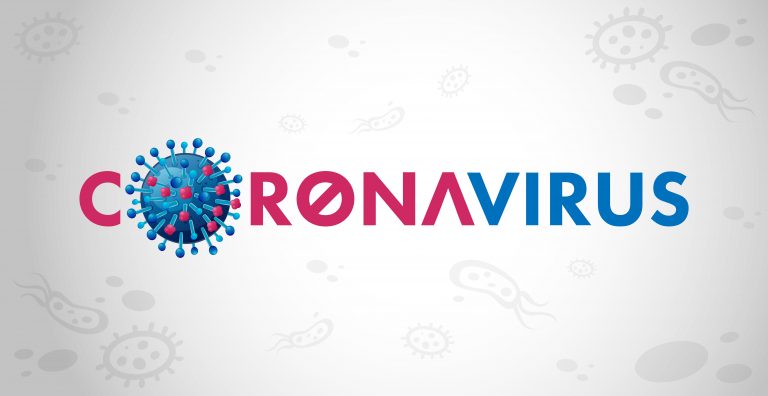
Please note: The following blog was posted on March 3rd, 2020, and was written as information on COVID-19 was unfolding. For the most updated COVID information, please see our COVID Information page.
We have heard a lot about the novel Coronavirus (COVID-19) in the past few weeks. Just recently the CDC suggested to the American people to prepare for possible spread within our communities. So what does that mean for you and your family? Well first, don’t panic. There is no epidemic or pandemic here in the US. The CDC and all of us here at Allied believes prepare don’t panic.
How is COVID-19 spread? It is believed to be able to spread person-to-person in a 6-foot radius via respiratory droplets when an infected person coughs or sneezes. It may be spread from contact with infected droplets on surfaces, like when an infected person touches a doorknob that someone else then touches. In the US spread from person to person has occurred only among a few close contacts. This is a newly emerging virus so how it is transmitted and its severity is still being studied. What we know from the data released by China in the last few days is that children under 5 years handle the virus well and there have been no reported fatalities for anyone under 9 years of age and only 1 for patients 10-19 years of age.
What are the symptoms of COVID-19 infections? They include fever, cough, and maybe shortness of breath. The incubation period is believed to be between 2 and 14 days and there is evidence that people can spread the virus before they have symptoms. Reassuringly, more than 80% of cases have been mild in severity. However, COVID19 symptoms may mimic that of the flu or other viral respiratory illness. This is good in the sense that the illness is relatively mild for most, however, it could make containing the spread of the virus difficult since milder cases can go undetected. In the United States, the probability of getting seasonal flu is still much higher than that of COVID19.
What about testing? Currently, only CDC labs are performing diagnostic testing. However, they anticipate the delivery of testing kits to state and local public health laboratories soon. According to the CDC, the test will not be available in hospitals or primary care settings.
While the risk to the American public is low at this time, everyone can do their part to help respond to this emerging public health threat.
If you have been in China or have been exposed to someone sick with COVID-19 in the last 14 days, you will face some limitations on your movement and activity. Please follow instructions during this time. Your cooperation is integral to the ongoing public health response to try to slow the spread of this virus. If you develop COVID-19 symptoms, contact your healthcare provider, and tell them about your symptoms and your travel or exposure to a COVID-19 patient.
For people who are ill with COVID-19, please follow CDC guidance on how to reduce the risk of spreading your illness to others.
For other FAQ from the CDC:
https://www.cdc.gov/coronavirus/2019-ncov/faq.html
More cases are likely, including more cases in the United States. It is important to know there is currently no known vaccine nor medication that actually treats the virus, although there are medications in clinical trials. The best thing we can do is be careful and remember the usual health precautions we have been using for flu prevention. Continue to practice good hand washing and instruct your children to wash their hands after using the restroom, before eating and drinking, and when visibly dirty.
The CDC states that “the federal government is working closely with state, local, tribal, and territorial partners, as well as public health partners, to respond to this public health threat. The public health response is multi-layered, with the goal of detecting and minimizing introductions of this virus in the United States so as to reduce the spread and the impact of this virus. CDC is operationalizing all of its pandemic preparedness and response plans, working on multiple fronts to meet these goals, including specific measures to prepare communities to respond to local transmission of the virus that causes COVID-19. There is an abundance of pandemic guidance developed in anticipation of an influenza pandemic that is being repurposed and adapted for a COVID-19 pandemic.”
Should you restrict travel? The CDC is recommending avoiding all nonessential travel to China and South Korea. Iran, Italy, and Japan are experiencing sustained community transmission. Older adults and those with chronic medical conditions should consider postponing nonessential travel. If you have been to these areas and you or child develop symptoms be sure to call and inform your healthcare provider of your recent travel before going to the office.
Written by: Dr. Eric Levene, Chester Pediatrics and Rachel Levene
Rachel Levene is a Ph.D. candidate at Tufts University School of Medicine, The daughter of Dr. Eric Levene and former #alliedkid.
Allied Physicians Group is a partnership of more than 150 dedicated, caring physicians and 350 highly trained support staff. Allied serves over 180,000 patients with offices throughout Greater New York City, Long Island, the Hudson Valley, and beyond. Founded in 2006, Allied Physicians Group is a recognized leader in increasing healthcare efficiencies and patient satisfaction, emphasizing support, innovation, and collaboration. If you are looking for a Pediatrician near you click here or for more information please visit https://alliedphysiciansgroup.com/.

